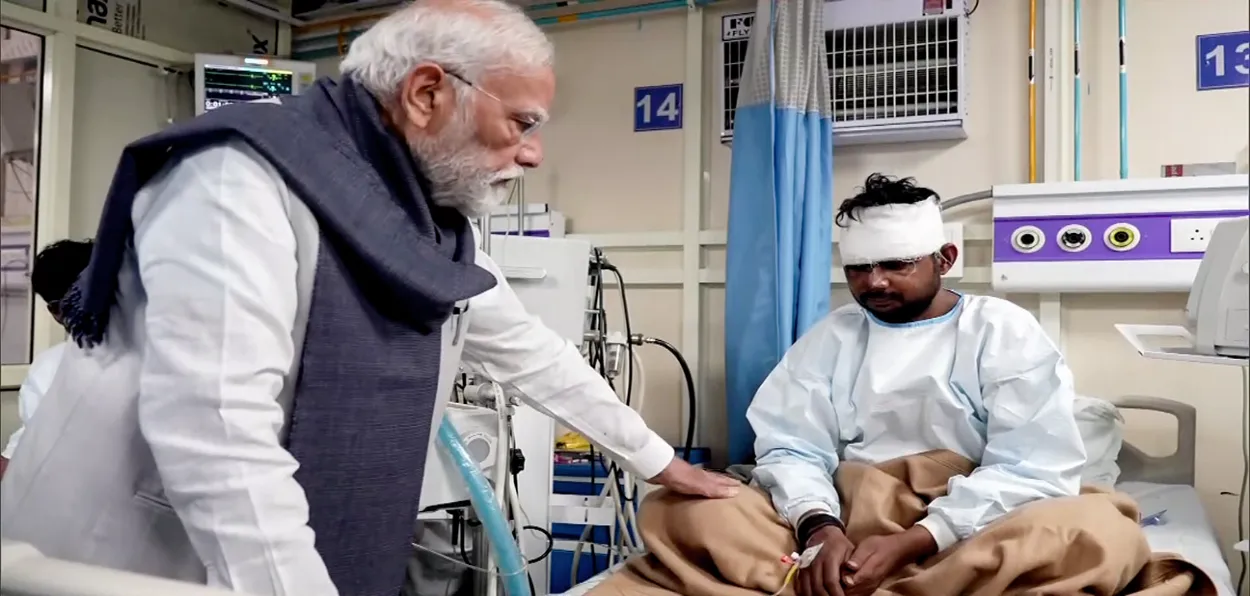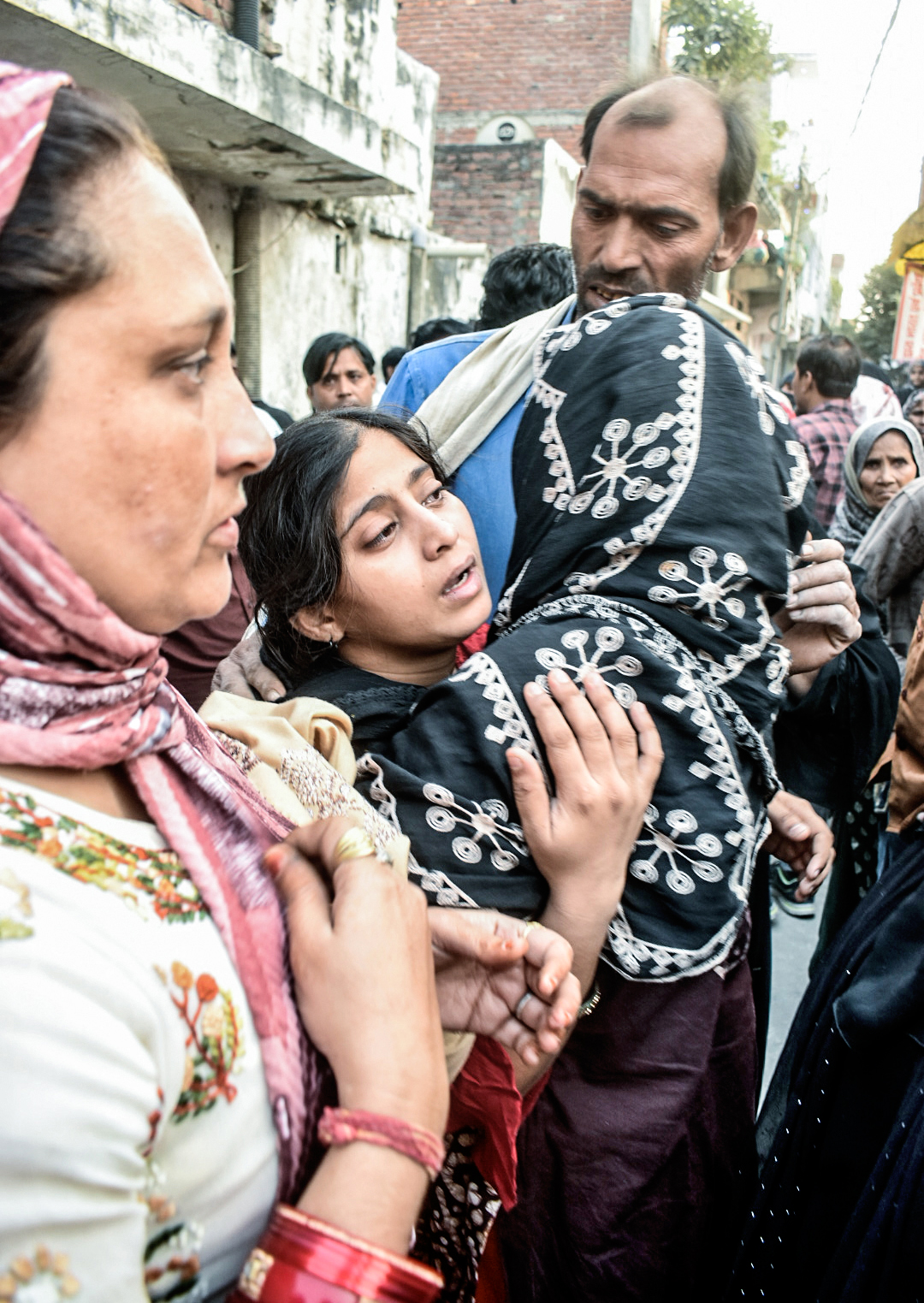
Amir Suhail Wani
The recent bomb attack in Delhi has once again shaken the collective conscience of the nation. Amid grief and outrage, a familiar and dangerous pattern unfolds: sensational headlines, speculation, and an unsettling rush to associate the act of a few with the faith of over a billion. The alleged involvement of a Muslim suspect has reignited a painful discourse that unfairly conflates Islam with extremism. It is a distortion that demands correction — one grounded in fact, faith, and fairness.
Islam, both in its etymology and essence, is a faith of peace, mercy, and spiritual harmony. The very word Islam springs from the Arabic root s-l-m, denoting peace, safety, and submission to the Divine will. Its greeting — As-salamu alaykum (peace be upon you) — is a daily invocation of harmony and goodwill.
The Qur’an’s message is unambiguous: “O you who believe, stand firmly for justice, as witnesses to God, even if it be against yourselves or your kin” (Qur’an 4:135).
This moral principle was personified by the Prophet Muhammad, who transformed an era of tribal vengeance into a civilisation of ethics and mercy. When he entered Mecca at the height of his power — the very city that had persecuted him and driven him into exile — he granted a general amnesty to all, declaring: “Go, for you are free.”
This magnanimous act remains one of the greatest precedents of forgiveness in human history.
The Qur’an recognises that conflict may sometimes be inevitable, but it sets firm moral boundaries for it: “Fight in the way of God those who fight you, but do not transgress. Indeed, God does not love the transgressors” (Qur’an 2:190).
Even in battle, mercy and restraint were commanded. The Prophet forbade harming non-combatants, women, children, the elderly, monks in monasteries, or even cutting down trees unnecessarily. His instruction to armies was explicit:
 “Do not kill a woman, a child, or an old man. Do not destroy fruit-bearing trees or inhabited places.” (Sunan Abu Dawud, 2614)
“Do not kill a woman, a child, or an old man. Do not destroy fruit-bearing trees or inhabited places.” (Sunan Abu Dawud, 2614)
The Qur’an’s call to conscience is equally clear: “There is no compulsion in religion” (Qur’an 2:256).
Faith, in Islam, is an act of free will, never to be imposed by force or fear. The Prophet himself said:
“The true Muslim is one from whose tongue and hands people are safe.” (Sahih al-Bukhari, 10) and “Beware! Whoever kills a soul unjustly, Allah will forbid Paradise for him.” (Sunan al-Nasa’i, 3987)
These teachings are not peripheral or obscure — they form the moral backbone of Islamic law and spirituality. Those who kill innocents in the name of Islam are not its defenders but its deniers.
Across centuries, Islamic scholars (ulama) and jurists have condemned wanton violence, anarchy, and rebellion (baghi). The Qur’an itself equates the killing of one innocent person with killing all humanity:
“Whoever kills a soul unless for a soul or for corruption in the land — it is as if he has killed all mankind. And whoever saves one, it is as if he has saved all mankind.” (Qur’an 5:32)
In our times, eminent authorities like Dr Muhammad Tahir-ul-Qadri, through his monumental Fatwa on Terrorism and Suicide Bombings, have reaffirmed that terrorism and suicide attacks constitute kufr — a denial of faith. Renowned institutions such as Al-Azhar University, the Organisation of Islamic Cooperation (OIC), and the Islamic Fiqh Academy have repeatedly issued declarations condemning terrorism, declaring that such acts are among the gravest of sins.
Islamic history is replete with examples of moral restraint and coexistence. The Constitution of Medina — the world’s first written social charter — guaranteed religious freedom and security to Muslims, Jews, and pagans alike.
During the caliphate of Umar ibn al-Khattab, when Jerusalem came under Muslim rule, not a single church was desecrated, nor a life harmed. His covenant with the Christians of Jerusalem remains an unparalleled model of religious tolerance.
Even in times of conquest, Islamic rulers upheld justice. Sultan Salahuddin Ayyubi (Saladin), after recapturing Jerusalem in 1187, offered safe passage to all Christian residents, in stark contrast to the Crusaders’ massacre decades earlier. His chivalry remains a testament to Islam’s ethics in power and peace.
Contrary to popular narratives, Muslims themselves are the greatest victims of terrorism. Data from global security indexes shows that the overwhelming majority of terror casualties are Muslim civilians — men, women, and children in countries like Iraq, Pakistan, Afghanistan, and Nigeria.
The so-called “Islamic” militants who perpetrate such crimes are not the voice of the faith but its betrayers. Their motivations are political, tribal, or personal — never theological.
Equating their atrocities with Islam is as absurd as holding Christianity responsible for the Ku Klux Klan or Buddhism for ethnic cleansing in Myanmar. Terrorism is not a religious phenomenon; it is a human pathology.
The Role of Islamic Scholars and Leadership
To confront extremism effectively, Muslim scholars and community leaders must continue to serve as intellectual and moral guides. Their responsibilities include:
Issuing Clear Religious Edicts (Fatwas): Scholars must categorically declare terrorism and suicide bombings as prohibited (haram).
Countering Misinterpretations: By contextualising Qur’anic verses and Hadiths, scholars can dismantle the ideological foundations of extremism.
Promoting Peace and Dialogue: Participation in interfaith, civic, and educational initiatives builds bridges and fosters mutual understanding.
ALSO READ: Why India's syncretic past matters today more than ever
Correcting misconceptions about Islam and terrorism is not solely a Muslim duty — it is a shared human obligation. Governments, media, and civil society must act together to challenge prejudice and amplify truth.
